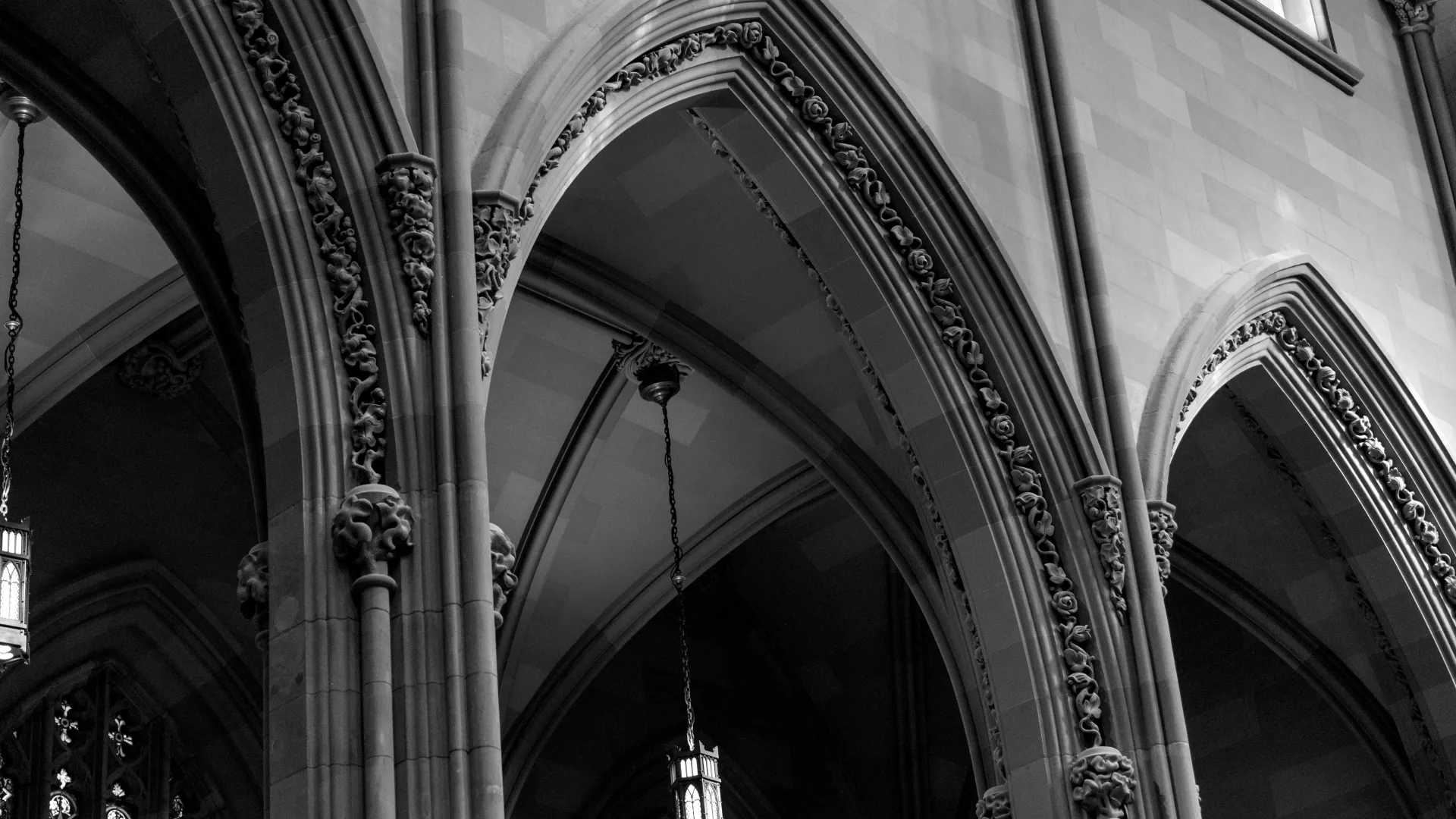
Trinity Archives
The Trinity Church Archives tell the story of our parish from its founding to today. The Archives preserve, protect, and make available records of enduring value with the goal of promoting the mission and ministry of our church. The Archives house more than 2,000 linear feet of records generated by the parish. In addition to documenting Trinity’s activities and growth, the records provide information pertinent to the history of New York City and the Episcopal Diocese of New York.
Genealogical Research
The Trinity Church Archives team is in the process of making data from our parish registers available online. Those conducting genealogical research are encouraged to access our databases to locate a gravestone at Trinity Church or St. Paul's Chapel, or search for baptisms, marriages, and burials. Data entry is ongoing.
Trinity’s Archives staff are available to conduct onsite genealogical research. They can search for the following:
Baptisms from 1749 to 1764 and 1778 onwards
Confirmations from 1860 onwards
Marriages from 1750 onwards
Burial records from 1777 to 1783 and 1800 onwards
The staff can also search communicants’ pew records, and records relating to St. Paul's Churchyard, Trinity Churchyard, and Trinity’s Uptown Cemetery.
All onsite genealogical research done by Archives staff is on a fee-for-service basis, depending on the complexity of the request and at the archivist's discretion. Fees for research and scans incur after the first 30 minutes of work. Fees are $20/half-hour of research time and $10/half-hour of scanning time.
Scholarly Research
Trinity's Archives are open to qualified researchers engaged in scholarly research at college-level or above.
Those wishing to visit the Archives for non-genealogical research must submit an email outlining their research purpose to archives@trinitychurchnyc.org. The email should state in detail the purpose of the research, the affiliation of the researcher, and identify the objectives and intended products of the research inquiry.
If you are unable to visit the Archives in person, our Archivists may be able to complete the research for you on a fee-for-service basis. Fees apply after the first 30 minutes of work. Fees are $20/half-hour of research time; if scans or photos of records are desired, fees are $10/half-hour of scanning time.
Our Finding Guide is a document that describes the records in our Archives. Our holdings are arranged by department function. Each department function has a historical note which provides background information, and a scope and content note which describes what records are available. The dates in the headings in parentheses refer to tenure of the person cited. Dates without parentheses refer to the date span of the records available in the archive.
For a copy of our Finding Guide, please email archives@trinitychurchnyc.org with a description of your research purpose.
Records that are more than 25 years old are open to the public, with a few exceptions. Confidential records, including personnel records and other documents containing sensitive personal information, are closed for a period of 75 years. The Archivists also reserve the right to restrict the use of records if they have not been processed or appraised, if they contain unseparated personal information, or if their condition is fragile.
Access Trinity's online registers database.
Access the Trinity Churchyard gravestones database.
Access the St. Paul's Chapel Churchyard gravestones database.





